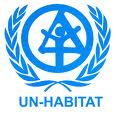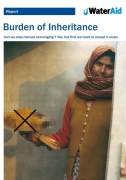/regions/political
Political
Sankalp 2010 Social Enterprise and Investment Forum, Intellecap, Mumbai
Posted on 20 Apr, 2010 12:55 PMOrganizer: Intellecap
Venue: Mumbai, Maharashtra, India
Description:
Sankalp Forum catalyzes entrepreneurship in the social business space. India's largest gathering of more than 400 social innovators, impact investors, policy leaders and change makers.
Press release : UL certifies Kimberlite Chemicals for health effects in drinking water
Posted on 20 Apr, 2010 11:25 AM
For Immediate Release
Underwriters Laboratories Certifies Kimberlite Chemicals for Health Effects in Drinking water
Kimberlite Chemicals Becomes First Indian Company to Earn UL
Certification for Antiscalant Water Treatment Chemicals
Bangalore, India, April 14 2010 – Underwriters Laboratories (UL), a global leader in drinking water quality and safety, today announced that Kimberlite Chemicals India Pvt. Ltd., received UL certification for its antiscalant water treatment chemicals. Kimberlite’s antiscalant water treatment chemicals will now bear the UL Classified Water Quality Mark, indicating certification to ANSI/NSF Standard 60 for health effects.
UL launched its drinking water product certification program in India in 2009 and has been working with a number of Indian companies on a broad range of products including disinfection and oxidation chemicals, coagulants, drinking water treatment units, gaskets, butterfly valves, sediment filter cartridges and activated carbon. Kimberlite, a renowned company known for its world-class technology product and service in the field of specialty chemicals and coatings, is the first Indian manufacturer to be certified through UL’s water program for antiscalant water treatment chemicals.
UL’s certification of Kimberlite’s antiscalant chemicals provides verification that these chemicals have been independently tested and validated to meet both industry standards for health effects in drinking water as well as UL’s rigorous certification requirements. Antiscalant chemicals are used to protect reverse osmosis (RO) membrane life and are used in industrial RO purifiers.
Using energy pricing as a tool for efficient, equitable and sustainable use of groundwater for irrigation
Posted on 20 Apr, 2010 07:14 AMThe paper analyzes the potential impacts of energy pricing on efficiency, equity and sustainability in groundwater use. The overall objective of the study is to analyze the socio-economic viability of pro rata pricing of electricity in agriculture. Specific objectives are:
- To study the impact of change in mode of electricity pricing on efficiency and sustainability of groundwater use by well owners
- To analyze the overall impact of electricity pricing on the farming system of well owners, including the economic prospects of farming
- To analyze the impact of change in mode of electricity pricing on the functioning of water markets
Evolving an integrated approach for improving efficiency of electricity-driven pumping of groundwater for agriculture - A discussion paper by CWS and Prayas
Posted on 20 Apr, 2010 06:57 AMThis study explores possibilities of local energy and groundwater management in Andhra Pradesh with the involvement of farmers for constructive contribution in improving the field situation in electricity supply and groundwater management.
Ground water pumping using electricity is a complex issue, leaving all actors - the farmers, distribution company, State government and environment conscious analysts - frustrated and dissatisfied. Farmers are frustrated with the poor quality of electricity supply, distribution companies with the low revenue, State government with the high levels of subsidy and the environmentalists with inefficient water use resulting in falling water tables. Level of mistrust between actors is also quite high. The process of evolving a sustainable solution is not clear.
In this context, this study by Prayas Energy Group and Centre for World Solidarity (CWS), explores:
- Grassroot and state-level insights, regarding electricity use and water management in agriculture
- Developing a simple methodology in consultation with farmers for collecting baseline field data and analyzing it towards improving the efficiency in a strategic way
- Possible areas of intervention in future
Water Policy in India - A brief overview: A paper by Centre for Public Policy (IIM Bangalore)
Posted on 20 Apr, 2010 06:30 AMThis paper by the Centre for Public Policy (CPP) of the Indian Institute of Management (IIM) Bangalore adds to the debate on water policy in India, and provides a general overview of the main characteristics of irrigation development post-Independence and a review of its beneficial and adverse impacts. The problems that need to be addressed and measures needed to resolve them are highlighted. It recognizes the vital role of expansion of irrigation in transforming agriculture from one of near stagnation in the pre-independence period to one of sustained growth during the past five decades.
Estimation of replenishable groundwater resources of India and their status of utilization - A research paper by CGWB
Posted on 19 Apr, 2010 09:49 PMThe paper describes the methodology used in the groundwater resource estimation and the results of the latest country-wide assessment. In India, dynamic groundwater resources are estimated jointly by the Central Ground Water Board (CGWB) and State governments at periodic intervals. The latest estimates of dynamic resources are based on groundwater resource estimation methodology-1997 (commonly known as GEC-1997). These estimations are widely used in formulating various groundwater development and management plans. The paper also discusses future strategies on groundwater resource estimations.
Rainwater harvesting in Mumbai: Application of GIS
Posted on 19 Apr, 2010 07:36 PMThis blog post by Prakash Apte, draws attention to the increasing water demand in urban areas because of industrialisation and population growth by giving the example of Mumbai and points at the current scenario of the lack of availability of adequate and safe water supply to meet the needs of the ever increasing population in the city.
The author proposes that rainwater harvesting can be a viable solution in cities such as Mumbai to meet this increasing demand for water and can provide an opportunity for equitable, efficient and sustainable use of water resources.
There is an urgent need for evolving a rainwater harvesting system that is sustainable, replicable and economically viable and argues that the benefits of using rainwater harvesting can lead to a range of social, economic and environmental benefits and can contribute substantially to improving the quality of life in Mumbai.
Geographic Information Systems (GIS) has a role and application, in promoting a system and methodology for rain water harvesting and for providing the data needed to enable its large scale implementation in the context of Mumbai.
Local catchment management in cities - A guidebook by UN-HABITAT
Posted on 19 Apr, 2010 05:02 PM This guidebook by UN-HABITAT, provides an overview of the principles and practices required for sustainable urban water catchment management. It deals with the principles and practices for better management of water resources which, in turn, will lead to general improvement in the health of the local population, food security, environmental protection and sustainable development. It states that it is necessary to develop enduring partnerships among the participating institutions and organizations in the catchment area.
This guidebook by UN-HABITAT, provides an overview of the principles and practices required for sustainable urban water catchment management. It deals with the principles and practices for better management of water resources which, in turn, will lead to general improvement in the health of the local population, food security, environmental protection and sustainable development. It states that it is necessary to develop enduring partnerships among the participating institutions and organizations in the catchment area.
Along side, policies, laws and regulations should be geared to provide an enabling framework as needed for formulation and implementation of action plans at the local level. The guidebook also comprises case studies from Australia, India, Latin America and South Africa to showcase the prospects of local action for water resources management.
Burden of Inheritance: Can we stop manual scavenging? – A report by WaterAid India
Posted on 19 Apr, 2010 04:28 PM This report by WaterAid outlines how over one million people in the country continue to scrape an existence through manual scavenging, forced largely by social convention and caste prejudice, and calls for strong action to eradicate this practice.
This report by WaterAid outlines how over one million people in the country continue to scrape an existence through manual scavenging, forced largely by social convention and caste prejudice, and calls for strong action to eradicate this practice.
A violation of human rights, this discriminatory and demeaning practice was outlawed by the Indian Parliament in 1993 but still continues today. India has missed three deadlines to make the country 'manual-scavenger free'. India's booming cities help keep the practice alive, as there is often little infrastructure for sanitary sewerage and waste disposal systems.
The report tries to seek answers to why this practice continues despite:
- Availability of other dignified livelihood sources, for the people in this occupation?
- Other cleaner options for survival existing in cities and towns?
- Feasible and viable technological alternatives being available to dry toilets, one of the drivers of this occupation?
Consultative Meet on Small, Marginal and Tenant Farmers in Agriculture, Hyderabad
Posted on 19 Apr, 2010 09:00 AMConsultative Meet on Small, Marginal and Tenant Farmers in Agriculture, 20th and 21st May at Hyderabad, Andhra Pradesh.
Pl find attched the concept note, brochure and registration format.